The World’s Most Romantic Socks Are Knitted on an Active Volcano
For a unique gift, order a pair from the island of Tristan da Cunha.

The island of Tristan da Cunha as seen from the International Space Station. (Photo: NASA/Public Domain)
Socks often get short shrift as presents, lumped in with other hastily-grabbed items like gift cards and gas station flowers.
But there’s no mistaking the effort required when you buy socks from Tristan da Cunha, made-to-order and artisanal, knitted by people living on an active volcano in the middle of the Atlantic Ocean.
Tristan da Cunha, home of said active volcano, is the world’s most remote island, accessible via a six-day sea voyage from South Africa. Its 267 residents are mostly farmers, dwelling at the base of a volcano. Supply ships come once a month and the island’s isolation is further punctuated by the occasional arrival of a fishing vessel from Cape Town or a cruise ship from Antarctica.
Inhabited since 1810, Tristan has developed some solid traditions. There’s the annual Ratting Day, a public holiday with a “carnival atmosphere” during which islanders divide into teams, head into the potato fields and kill as many rodents as possible. (The dead rats’ tails are severed from their bodies, allowing them to be counted and an overall Ratting Day winner declared.)
A less violent, more heart-warming tradition is that of the island’s “love socks,” which are knitted to express endearment. “In the old days, islanders were quite shy people, people of few words,” says Dawn Repetto, who lives on Tristan. “To demonstrate love and affection, they would more do it by gesture rather than words.”
For young people courting, this meant knitting one another woolen garments with hidden messages. Stripes came to be used as code—more stripes meant greater depth of feeling. “If you gave something like five stripes? Wow. That was almost like a proposal of marriage,” says Repetto.
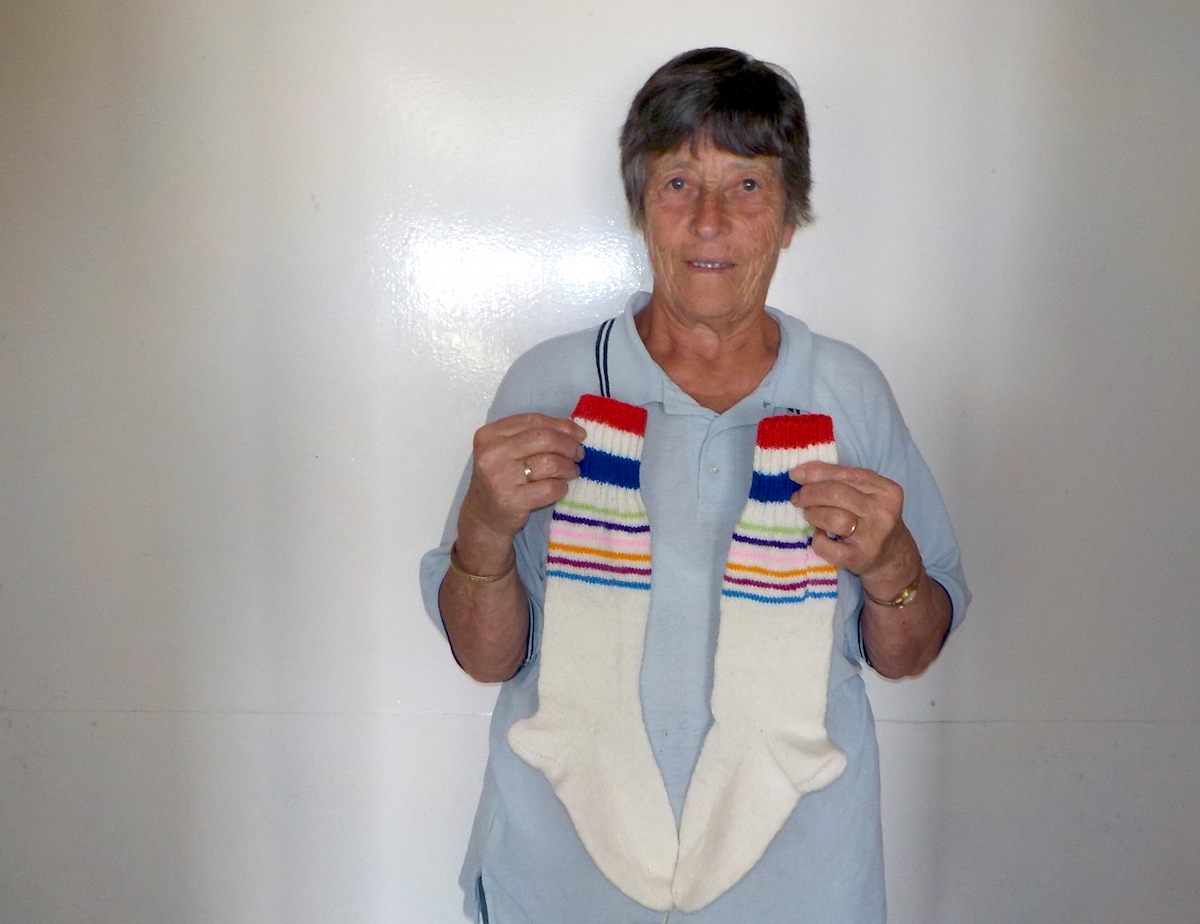
The famous socks. (Photo: Courtesy of Dawn Repetto)
Socks were the garment of choice for young lovers. Traditionally, a woman would knit a pair for her intended paramour, adding as many stripes as she saw fit. If the target of her affection felt good about the stripe situation, he would signal his acceptance by knitting a pair of moccasins for the young lady. According to official love socks lore, “The young lady would then offer to wash his clothes and this was a sign that they were formally engaged and a marriage would follow shortly.”
Tristan’s knitters still make love socks, both for themselves and as souvenirs. Beyond the occasional cruise ship, the island doesn’t get a lot of visitors—the supply ships that run from Cape Town every month or so have scant space available for sightseers. Anyone seeking a pair of love socks, however, can buy them online. Once an order is placed, Repetto says, “we will get someone in the village to knit that pair of love socks to your specifications.” Then it’s just a matter of putting the finished foot-warmers on the next vessel to Cape Town.
There is no two-day shipping option—regardless of the buyer’s location, it takes a few months for a pair of love socks to arrive. But if you ever want to impress someone with a thoughtful, unexpected gift, it’s hard to go past a pair of custom socks hand-knitted by residents of the world’s most remote island.
Object of Intrigue is a weekly column in which we investigate the story behind a curious item. Is there an object you want to see covered? Email ella@atlasobscura.com


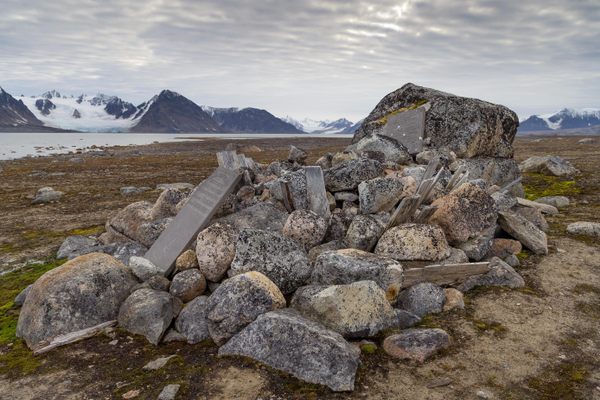


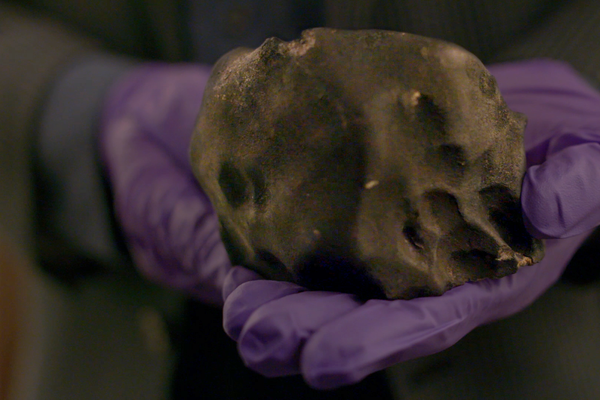
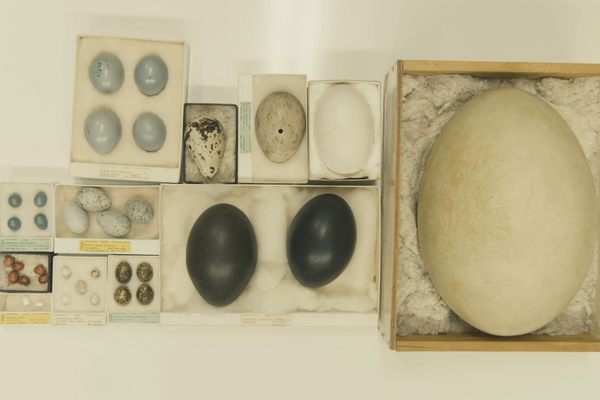
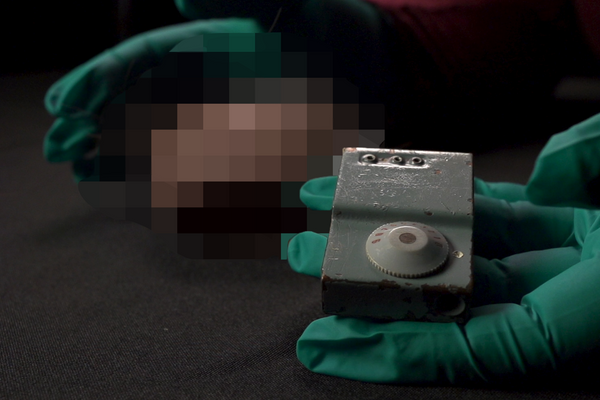









Follow us on Twitter to get the latest on the world's hidden wonders.
Like us on Facebook to get the latest on the world's hidden wonders.
Follow us on Twitter Like us on Facebook